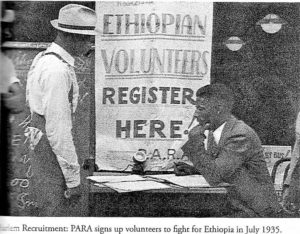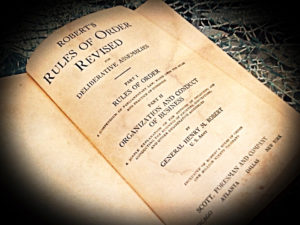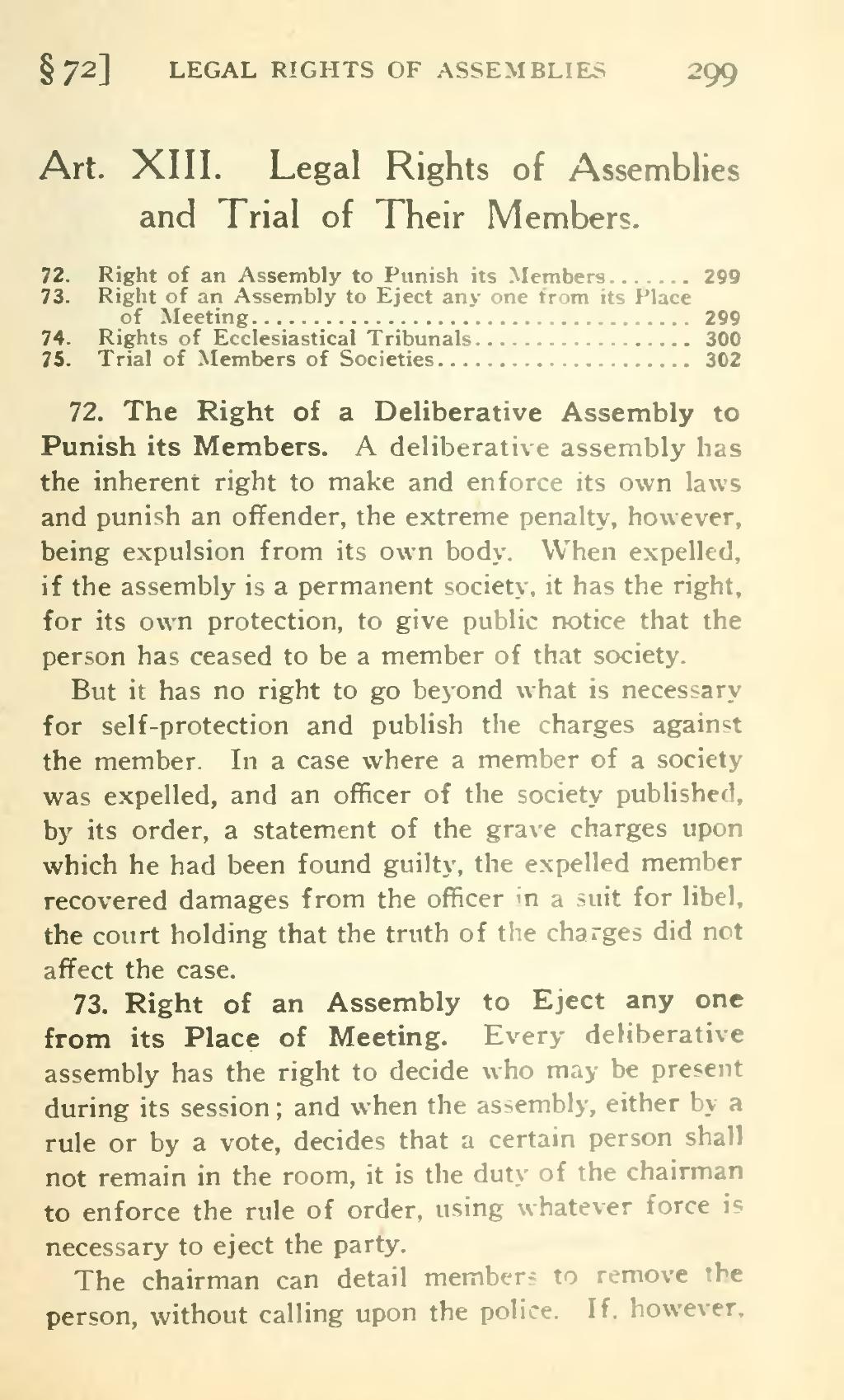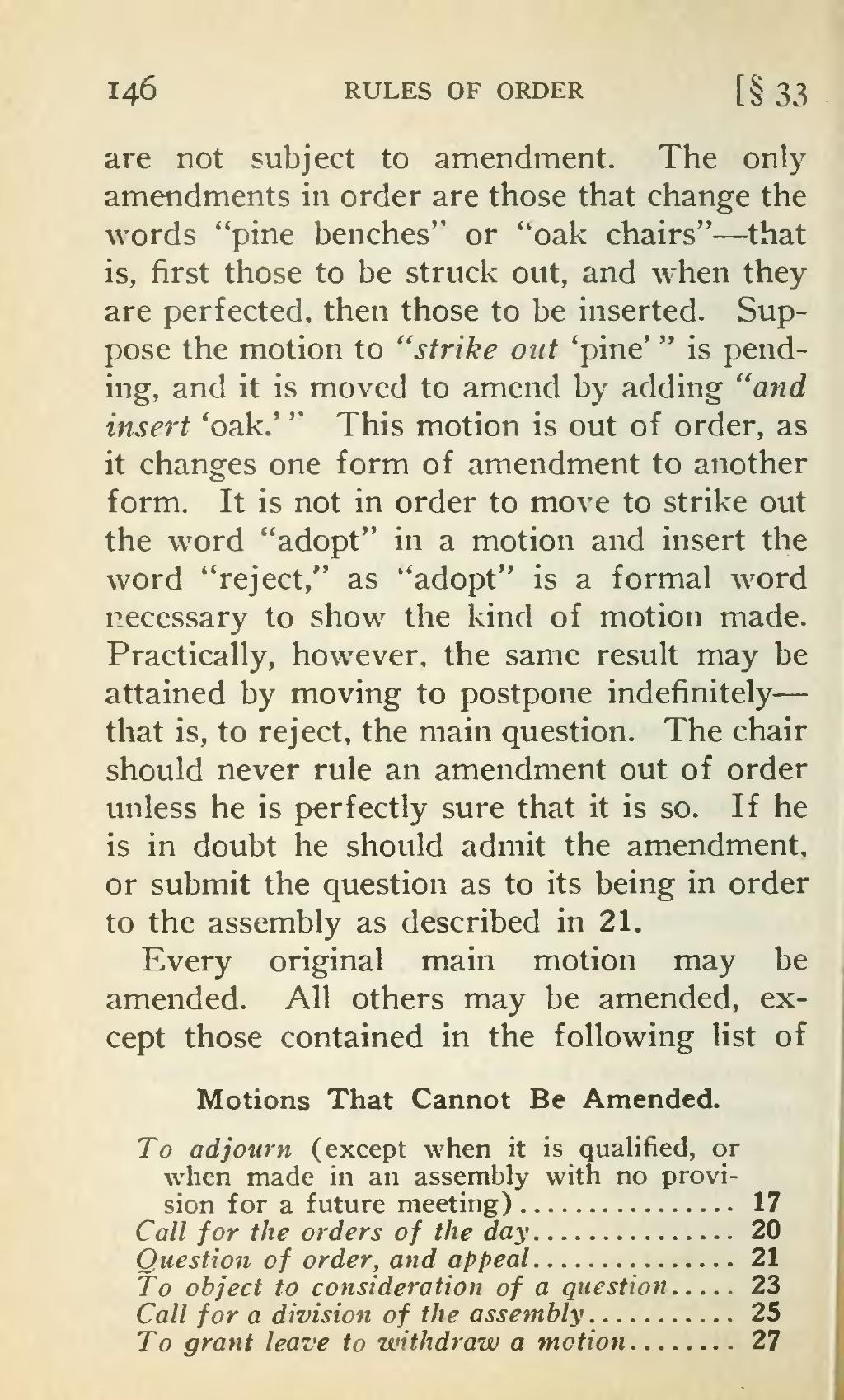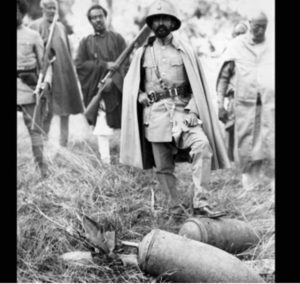Birth and Ancestry
Empress Menen Asfaw (Baptismal name Wolete Giyorgis) (25 March 1883 Ethiopian Calendar, 3 April 1891 Gregorian calendar – 15 February 1962) was the wife and consort of Emperor Haile Selassie I of Ethiopia.
 Empress Menen was born in the Wollo province Ambassel Region at ‘Egua’. The daughter of Asfaw, Jantirar of Ambassel and Woizero Sehin and was baptized in St Delba George Church. Asfaw was a direct descendant of Emperor Lebna Dengel (1532), through Emperor Gelawdewos (1551) of Ethiopia and his daughter Princess Enkulal Gelawdewos. The title of Jantirar has traditionally belonged to the head of the family holding the mountain fortress of Ambassel, and he was one of them. Her mother was Woizero Sehin Mikael, half-sister of Lij Iyasu Emperor of Ethiopia from 1913-16.
Empress Menen was born in the Wollo province Ambassel Region at ‘Egua’. The daughter of Asfaw, Jantirar of Ambassel and Woizero Sehin and was baptized in St Delba George Church. Asfaw was a direct descendant of Emperor Lebna Dengel (1532), through Emperor Gelawdewos (1551) of Ethiopia and his daughter Princess Enkulal Gelawdewos. The title of Jantirar has traditionally belonged to the head of the family holding the mountain fortress of Ambassel, and he was one of them. Her mother was Woizero Sehin Mikael, half-sister of Lij Iyasu Emperor of Ethiopia from 1913-16.
- Abdullah bin Muhammed al-Bakir 5th in descent from the Prophet
- Musa al-Quadim
- Umar
- Taji Allah
- Yahya
- Ishmail
- Nur Ahmed
- Khalil
- Ibrahim
- Muhammed
- Yagut
- Yakub
- Imam Nawr
- Sani Allah
- Isa
- Aisha
- Zayn al-Kher
- Nur Husayn
- Shams ad-Din
- Nur ad-Din
- Dwa ad-Din
- Papu
- Imam Muhammed I
- Imam Ahmad
- Imam Muhammed II
- Imam Lihan
- Imam Ali II
- Muhammad Ali Mikael (died 1919)
- Princess Sehin (wed Janterar Asfa)
- Empress Menen (wed Haile Selassie)
 The Early Years
Woizero Menen Asfaw was given in marriage by her family, to the prominent Wollo nobleman, Dejazmach Ali of Cherecha, and bore him a daughter, Woizero Belaynesh Ali, and a son, Jantirar Asfaw Ali. This first marriage ended in divorce, and Woizero Menen then married Dejazmach Amede Ali Aba-Deyas, another very prominent nobleman of Wollo. She bore her second husband two children as well, a daughter Woizero Desta Amede, and a son Jantirar Gebregziabiher Amede. Following the sudden death of her second husband, Woizero Menen’s grandfather, Negus Mikael arranged her marriage to Ras Leul Seged Atnaf Seged, a prominent Shewan nobleman, who was considerably older than Woizero Menen, sometime in late 1909 or early 1910. Empress Menen had no children by Ras Leul Seged. In Nov. 5 1910 she started a journey from Dessie and reached Addis Ababa on Nov. 25, 1910.
Woizero Menen probably met Dejazmach Tafari Makonnen (later Emperor Haile Selassie)
The Early Years
Woizero Menen Asfaw was given in marriage by her family, to the prominent Wollo nobleman, Dejazmach Ali of Cherecha, and bore him a daughter, Woizero Belaynesh Ali, and a son, Jantirar Asfaw Ali. This first marriage ended in divorce, and Woizero Menen then married Dejazmach Amede Ali Aba-Deyas, another very prominent nobleman of Wollo. She bore her second husband two children as well, a daughter Woizero Desta Amede, and a son Jantirar Gebregziabiher Amede. Following the sudden death of her second husband, Woizero Menen’s grandfather, Negus Mikael arranged her marriage to Ras Leul Seged Atnaf Seged, a prominent Shewan nobleman, who was considerably older than Woizero Menen, sometime in late 1909 or early 1910. Empress Menen had no children by Ras Leul Seged. In Nov. 5 1910 she started a journey from Dessie and reached Addis Ababa on Nov. 25, 1910.
Woizero Menen probably met Dejazmach Tafari Makonnen (later Emperor Haile Selassie)  at the home of her uncle, Lij Iyasu. The rapport between the two may have inspired Lij Iyasu to attempt to bind Dejazmach Tafari to him more firmly through marriage ties. He therefore arranged the separation of Woizero Menen from Ras Leul Seged, and sent her to Harar to marry Dejazmatch Tafari Makonnen. They were married in July of 1911. Ras Leul Seged apparently did not hold a grudge against Dejazmatch Tafari for this circumstance, blaming it entirely on Lij Iyasu who had ordered it. He was among the leaders who fought on the side of Dejazmach Tafari Makonnen in the Battle of Segale, and died in that battle.
In Oct. 17, 1916 Lij’ Eyasu was over thrown from his authority of ruling the country. Even though their grand father King Michale made civil war since he was at the side of his son Lij Eyasu. Princess Menen kept her promise with her husband crown prince Dejazmach Tafari and showed her loyalty helping him up to the end.
Lij’ Eyasu was succeeded by Empress Zauditu, who gave Dejazmach Tafari the position of a regent and in 1928 this position was elevated, as she granted him the throne of Shoa, his title was then elevated to Negus, “King”. There was incomplete church started by Empress Taitu which is found in east Addis Ababa around Entoto Tigat. Empress Taitu told to Woizero Menen to complete it. Keeping her promise Empress Menen invested a lot of money and completed the construction of the church in 1922. In March 16 1922 the “Kidane Mihret” church opened for worship. The church became monastery called “Hamere Noh’. Woizero Menen gave her estate to the monastery helped those who give service to the church. This monastery is still a shelter for many Christians. There is holy water near to the church which people immersed in, and drink. People from every corner of Ethiopia give thanks to Empress Menen for this gift.
On March 1922 Woizero Menen travelled to Jerusalem to visit the birthplace of Jesus
at the home of her uncle, Lij Iyasu. The rapport between the two may have inspired Lij Iyasu to attempt to bind Dejazmach Tafari to him more firmly through marriage ties. He therefore arranged the separation of Woizero Menen from Ras Leul Seged, and sent her to Harar to marry Dejazmatch Tafari Makonnen. They were married in July of 1911. Ras Leul Seged apparently did not hold a grudge against Dejazmatch Tafari for this circumstance, blaming it entirely on Lij Iyasu who had ordered it. He was among the leaders who fought on the side of Dejazmach Tafari Makonnen in the Battle of Segale, and died in that battle.
In Oct. 17, 1916 Lij’ Eyasu was over thrown from his authority of ruling the country. Even though their grand father King Michale made civil war since he was at the side of his son Lij Eyasu. Princess Menen kept her promise with her husband crown prince Dejazmach Tafari and showed her loyalty helping him up to the end.
Lij’ Eyasu was succeeded by Empress Zauditu, who gave Dejazmach Tafari the position of a regent and in 1928 this position was elevated, as she granted him the throne of Shoa, his title was then elevated to Negus, “King”. There was incomplete church started by Empress Taitu which is found in east Addis Ababa around Entoto Tigat. Empress Taitu told to Woizero Menen to complete it. Keeping her promise Empress Menen invested a lot of money and completed the construction of the church in 1922. In March 16 1922 the “Kidane Mihret” church opened for worship. The church became monastery called “Hamere Noh’. Woizero Menen gave her estate to the monastery helped those who give service to the church. This monastery is still a shelter for many Christians. There is holy water near to the church which people immersed in, and drink. People from every corner of Ethiopia give thanks to Empress Menen for this gift.
On March 1922 Woizero Menen travelled to Jerusalem to visit the birthplace of Jesus Christ. Woizero Menen travelled to Jerusalem by train and ship via Djibouti . After she had visited every part of Jerusalem, she went to Egypt to visit holy places. She gave a lot of money to monasteries then returned to Ethiopia. Slavery was abolished in a symbolic decree, in 1918, this being enforced further in 1923 with Ethiopia’s ascension to the League of Nations. On May 28 1926 Empress Menen donated a large sum of money for the poor’s children and freed slaves to construct schools. Unfortunately the following year on 3rd October her mother Woizero Sihin passed away in Addis Ababa at the age of 56 years. The funeral ceremony was at Debre Selam Medhane Alem Church.
On Sep. 24 1930 Woizero Menen founded a new school for girls near to Genete Loul Palace. Women now participated in the sphere of knowledge and technology equally with men.. Later that year on 2nd November 1930, after the death of Empress Zauditu, Ras Tafari Makonnen was crowned emperor, upon his ascension to Emperor, he took as his regal name “Haile Selassie”, meaning “Power of the Trinity”. Haile Selassie’s full title in office was “His Majesty Haile Selassie I, Conquering Lion of the Tribe of Judah, King of Kings (Emperor) of Ethiopia, Elect of God”. As his wife Woizero Menen was crowned Empress Menen.
Reign
Empress Menen was active in promoting women’s issues in Ethiopia, was Patroness of the Ethiopian Red Cross, and the Ethiopian Women’s Charitable Organization. In Sept. 6, 1926 Empress Menen went to sacred land Jerusalem for the 2nd time. After she visited different Churches and monasteries she helped to construct the St. Trinity church for Ethiopians on her account. She donated a lot of money for the monastery & clergymen and inaugurated the church. In Oct. 2, 1926 she completed her visit of Jerusalem and came back to Addis Ababa. She was also patroness of the Jerusalem Society that arranged for pilgrimages to the Holy Land.
She founded the Empress Menen School for Girls in Addis Ababa, the first all girls school which had both boarding and day students. Girls from all over the Empire were brought to the school to receive a modern education, encouraged by the Empress who visited it often and presided over its graduation ceremonies. The Empress gave generously, as well as sponsored programs for the poor, ill and disabled. She was also a devoutly religious woman who did much to support the Ethiopian Orthodox Tewahedo Church. She built, renovated and endowed numerous churches in Ethiopia and in the Holy Land. Prominent among these are the St. Raguel Church in Addis Ababa’s Merkato district, the Kidane Mehret (Our Lady Covenant of Mercy) Church on Mount Entoto, and the Holy Trinity Monastery on the banks of the River Jordan in the Holy Land. She gave generously from her personal funds towards the building of the new Cathedral of St. Mary of Zion at Axum, but did not live to see it completed and dedicated.
In 1935 Fascist Italy started its invasion of Ethiopia. Empress Menen gathered Ethiopian women together preparing logistic support, first aid materials and sent them to the battle field. On Sept. 13, 1935 Empress Menen addressed the World women Association against the Italian aggression and appealed to all world nation states.
Empress Menen’s Speech
I am pleased to present my speech to all world women. When Italy conquered our people and country the world women Association supported us to settle peace and freedom. We are very happy to express our deep feeling for the association.
When I am speaking now in order to be understood to all countries my daughter princess Tsehaye will translate my speech into English.
Princess Tsehaye made speech as follows.
During this time Italy conquered us difficulty unjustly and world women should hear their voice.
Even though world women are living in different countries with different climate, all women are interrelated with the same will and objectives.
War is distress and trouble of mankind, all world women are in different countries, different race, and religion the act of violence and war victimized their husbands, brothers and children. War is a destruction of the family and can make people immigrant. So women are against war.
We know that all Italian mothers and barren women may worry about the war, since war is good for nothing. Therefore, all women found in the world should prevent the war before it brings trouble and distress. They should collaborate their voice and request to avoid the war before the bloodshed comes on both sides.
Ethiopia do not think to act the violence conflict, her wish is to maintain peace. Ethiopia tried to settle the conflict peacefully in early months. In every aspect Ethiopia has done here best. So we are mentally free.
Ethiopian people welcomed any foreigners, guests who came to work peacefully and innocently, Ethiopian people good hospitality to foreigners has been narrated in the history of the world. However, one state is which is neighbor to Ethiopia is trying to control and govern. Ethiopia is always on the line of peace, while the rival state is looking only its own interest.
The enemy deployed its army and based around our country to kill our women’s husbands, children, brothers. Our people live working peacefully being God fearing but the enemy is trying to devastate the wealth of the country and destroy our family in the name of modernization.
We pray to God not to face such kind of distress and destruction if the so called modernization brings a big trouble.
Hence, the association which is established for the purpose of peace by world women may exert influence to bring peace and stability. We don’t hesitate that world women Association may contribute a lot to settle this conflict peacefully.
We pray to god that the Association to accomplish its mission. We hope the act of the Association may bring fruitful result to preserve peace and security in our country.
Nonetheless, if the war is started, we women should treat wounded soldiers and minimize the trouble of the war.
Women who are living all over the world who stand for peace may help us during the war time. We know that these women assist the sacrificed patriot’s family.
All women of the world should struggle to bring peace and justice. Government officials may guided on the line of God, we pray for this and you may collaborate with us.”
Empress Menen
When the Empress was exiled from Ethiopia during the Italian occupation from 1936 to 1941, she made a pledge to the Virgin Mary at the Church of the Nativity in Bethlehem, promising to give her crown to the church if Ethiopia were liberated from occupation. The Empress made numerous pilgrimages to Holy Sites in then British-ruled Palestine, in Syria and in Lebanon, during her exile to pray for her occupied homeland. Following the return of Emperor Haile Selassie and his family to Ethiopia in 1941, a replica of the crown was made for future Empresses, but the original crown that Empress Menen was crowned with at her husband’s side in 1930 was sent to the Church of the Nativity in Bethlehem. Empress Menen, although often seen wearing a tiara at public events that called for it, would never again wear a full crown. On her return to Ethiopia the Empress made the following speech through Princess Tsehay. During a visit to the Wollo province
“First of all I would like to thank the Almighty Lord for which our flag is replaced. Our patriots came back with a victory staying in the bush for 5 years. Secondly, any human being may have a great pleasure when he or she join with his/her birth place. With grace of God I was eager to see my native place Wollo. I am very happy as I am with you after 31 years.
“Next I am very grateful for the people who received me with great pleasure.
“All of you know that this naturally gifted country which is green and different from any African countries has never been under colony and has been ruled only by its own kings.
“After many trials Italy made propaganda warfare since she can’t control before. Through this campaign tried to dismiss our unity and divide our people.
“Is there anybody who did not miss his relative during the war? Some of our citizens were killed by hoes, spade and machine guns.
“God made it possible that Ethiopia won its enemy quickly. We, the citizen’s children feel proud when we see our country freed from any aggression and we are very thankful to Almighty God.
“Ethiopian people have got a good lesson from the past experience which enables us to cooperate as one mother’s children love each other. This made every Ethiopian to struggle for the country’s independence and freedom. “You have seen that people without freedom is victim as this was seen during 5 years aggression. Indeed our people did not hate native rulers as far as they keep the language, custom and tradition of the people. But Italians tried to rule in a subtle way. During the aggression even though the enemy killed our people, patriots went to the bush and some went abroad in exile. This situation surprised the world.
“My native ladies and gentle men of Wollo our country has been free since 3000 years back. However through the help of England and fierce struggle of its children, we freed our country, the flag and king for our common motherland Ethiopia. We have to be one and united.
“The prince crown is selected and came up from you, our beloved son prince Meried Azmach Asfa Wosen is with you. Even though I was separated for 31 years physically it is impossible to say that I was living alienated my self from you. I was with you spiritually.
“Our beloved son is your governor. I believe you may be very happy when I tell you this information. “You may service him loyally and kindly on the other hand he may share your problem and help you. He may administer you through good Justice – Please, give him advice and assist him any time.
“Let Good keep our fertile country. Let God make it possible long live to our flag.”
Empress Menen performed perfectly in the role of Empress-consort. In her public role she combined religious piety, concern for social causes, and support for development schemes with the majesty of her Imperial status. Outwardly she was the dutiful wife, visiting schools, churches, exhibitions and model farms, attending public and state events at her husband’s side or by herself. She took no public stand on political or policy issues. Behind the scenes however, she was the Emperor’s most trusted advisor, quietly offering advice on a whole range of issues. She avoided the publicly political role that her predecessor as Empress-consort, Empress Taitu Bitul, had taken, which had caused deep resentment in government circles during the reign of Menelik II.
In April 18, 1949 she celebrated the 25th anniversary of Empress Menen School. On this celebration, there were a lot of people. The school had shown progress and gave the chance for all girls to be educated. On this occasion she extended her message through Teferra Work to the gathered people. His Imperial Majesty King of Kings believed that there is nothing better for the development of Country’s progress and development except education. In this regard on his willingness he built many schools for boys. But if girls are left behind without having regular education, may have disadvantage. Therefore, I have opened his school for the merit of girls for 25 years since I believe girls should learn as boys.
This school was discontinued by the invasion of enemy against Ethiopia while it was process its own on going objective.By the grace of God the school resumed its function after the victory. Many girls have got a chance to be promoted at the higher level of education after graduated in this school. Many of them are working in the government offices and in private organizations. If my country’s girls get a chance to learn the standard education I hope they can contribute a lot which is expected from them as their brothers. There were not more than 50 students before 25 years when the school was opened. But today there are about 1300 students. This number is increasing because girls are aware of the advantage of education I am very happy to see to this progress. I thank the Almighty God for which I celebrate the 25th of Empress Menen School. I thank the director of this school and lady teachers for which they share the problem of the school and the progress of the school.
The Empress and some of her family were placed under house arrest briefly during the 1960 Imperial Guard coup attempt against her husband at her villa outside the Guenete Leul Palace grounds in northern Addis Ababa. Following the return of the Emperor and the crushing of the coup attempt, there was much speculation as to the conduct of the Crown Prince, who had been proclaimed monarch by the coup leaders. It was noted that the Crown Prince had accompanied his mother in a drive through the palace grounds, making stops at Imperial Guard posts to exchange pleasantries with the guards, on the night before the coup was launched. The ailing Empress had been urged to visit the posts by security officials, who were concerned about the soldiers’ morale, and perhaps had an idea that something was brewing. The appearance of the Empress with the Crown Prince at her side may have been used by coup leaders as an indication to their followers that the Empress might sympathise with a movement that brought her favored son to the throne. It is extremely unlikely that either the Empress or the Prince had any idea of what was being plotted. However, a cloud of suspicion never left the Crown Prince, and the Empress was deeply saddened by this.
Following her death in 1962, the Empress was buried in the crypt of Holy Trinity Cathedral in Addis Ababa among the tombs of her children. Prime Minister Aklilu Hapte-Wold delivered her eulogy paying tribute to her charity, her piety, and her role as advisor and helpmate to the Emperor, as well as her personal kindness and goodness. On the third day memorial and commemoration after the funeral, the Emperor himself paid tribute to his wife by saying that although the Prime Minister had aptly described what kind of person his late wife had been, he wanted to say that during their five decades of marriage, not once had it been necessary to have a third party mediate between him and his wife, and that their marriage had been one of peace and mutual support.
Later, the Emperor built a pair of grand sarcophagi in the north transept of Holy Trinity Cathedral’s nave, in order to transfer his wife’s remains there and eventually be buried at her side himself. But due to the revolution, the Emperor was not buried there after his death, and the Empress remained in her original tomb in the crypt. During the ceremonial burial of her husband’s remains in November 2000, the remains of Empress Menen were also disinterred from the crypt tomb, and placed in the sarcophagus next to her husband in the nave of the Cathedral, as he had originally intended.
]]>
Christ. Woizero Menen travelled to Jerusalem by train and ship via Djibouti . After she had visited every part of Jerusalem, she went to Egypt to visit holy places. She gave a lot of money to monasteries then returned to Ethiopia. Slavery was abolished in a symbolic decree, in 1918, this being enforced further in 1923 with Ethiopia’s ascension to the League of Nations. On May 28 1926 Empress Menen donated a large sum of money for the poor’s children and freed slaves to construct schools. Unfortunately the following year on 3rd October her mother Woizero Sihin passed away in Addis Ababa at the age of 56 years. The funeral ceremony was at Debre Selam Medhane Alem Church.
On Sep. 24 1930 Woizero Menen founded a new school for girls near to Genete Loul Palace. Women now participated in the sphere of knowledge and technology equally with men.. Later that year on 2nd November 1930, after the death of Empress Zauditu, Ras Tafari Makonnen was crowned emperor, upon his ascension to Emperor, he took as his regal name “Haile Selassie”, meaning “Power of the Trinity”. Haile Selassie’s full title in office was “His Majesty Haile Selassie I, Conquering Lion of the Tribe of Judah, King of Kings (Emperor) of Ethiopia, Elect of God”. As his wife Woizero Menen was crowned Empress Menen.
Reign
Empress Menen was active in promoting women’s issues in Ethiopia, was Patroness of the Ethiopian Red Cross, and the Ethiopian Women’s Charitable Organization. In Sept. 6, 1926 Empress Menen went to sacred land Jerusalem for the 2nd time. After she visited different Churches and monasteries she helped to construct the St. Trinity church for Ethiopians on her account. She donated a lot of money for the monastery & clergymen and inaugurated the church. In Oct. 2, 1926 she completed her visit of Jerusalem and came back to Addis Ababa. She was also patroness of the Jerusalem Society that arranged for pilgrimages to the Holy Land.
She founded the Empress Menen School for Girls in Addis Ababa, the first all girls school which had both boarding and day students. Girls from all over the Empire were brought to the school to receive a modern education, encouraged by the Empress who visited it often and presided over its graduation ceremonies. The Empress gave generously, as well as sponsored programs for the poor, ill and disabled. She was also a devoutly religious woman who did much to support the Ethiopian Orthodox Tewahedo Church. She built, renovated and endowed numerous churches in Ethiopia and in the Holy Land. Prominent among these are the St. Raguel Church in Addis Ababa’s Merkato district, the Kidane Mehret (Our Lady Covenant of Mercy) Church on Mount Entoto, and the Holy Trinity Monastery on the banks of the River Jordan in the Holy Land. She gave generously from her personal funds towards the building of the new Cathedral of St. Mary of Zion at Axum, but did not live to see it completed and dedicated.
In 1935 Fascist Italy started its invasion of Ethiopia. Empress Menen gathered Ethiopian women together preparing logistic support, first aid materials and sent them to the battle field. On Sept. 13, 1935 Empress Menen addressed the World women Association against the Italian aggression and appealed to all world nation states.
Empress Menen’s Speech
I am pleased to present my speech to all world women. When Italy conquered our people and country the world women Association supported us to settle peace and freedom. We are very happy to express our deep feeling for the association.
When I am speaking now in order to be understood to all countries my daughter princess Tsehaye will translate my speech into English.
Princess Tsehaye made speech as follows.
During this time Italy conquered us difficulty unjustly and world women should hear their voice.
Even though world women are living in different countries with different climate, all women are interrelated with the same will and objectives.
War is distress and trouble of mankind, all world women are in different countries, different race, and religion the act of violence and war victimized their husbands, brothers and children. War is a destruction of the family and can make people immigrant. So women are against war.
We know that all Italian mothers and barren women may worry about the war, since war is good for nothing. Therefore, all women found in the world should prevent the war before it brings trouble and distress. They should collaborate their voice and request to avoid the war before the bloodshed comes on both sides.
Ethiopia do not think to act the violence conflict, her wish is to maintain peace. Ethiopia tried to settle the conflict peacefully in early months. In every aspect Ethiopia has done here best. So we are mentally free.
Ethiopian people welcomed any foreigners, guests who came to work peacefully and innocently, Ethiopian people good hospitality to foreigners has been narrated in the history of the world. However, one state is which is neighbor to Ethiopia is trying to control and govern. Ethiopia is always on the line of peace, while the rival state is looking only its own interest.
The enemy deployed its army and based around our country to kill our women’s husbands, children, brothers. Our people live working peacefully being God fearing but the enemy is trying to devastate the wealth of the country and destroy our family in the name of modernization.
We pray to God not to face such kind of distress and destruction if the so called modernization brings a big trouble.
Hence, the association which is established for the purpose of peace by world women may exert influence to bring peace and stability. We don’t hesitate that world women Association may contribute a lot to settle this conflict peacefully.
We pray to god that the Association to accomplish its mission. We hope the act of the Association may bring fruitful result to preserve peace and security in our country.
Nonetheless, if the war is started, we women should treat wounded soldiers and minimize the trouble of the war.
Women who are living all over the world who stand for peace may help us during the war time. We know that these women assist the sacrificed patriot’s family.
All women of the world should struggle to bring peace and justice. Government officials may guided on the line of God, we pray for this and you may collaborate with us.”
Empress Menen
When the Empress was exiled from Ethiopia during the Italian occupation from 1936 to 1941, she made a pledge to the Virgin Mary at the Church of the Nativity in Bethlehem, promising to give her crown to the church if Ethiopia were liberated from occupation. The Empress made numerous pilgrimages to Holy Sites in then British-ruled Palestine, in Syria and in Lebanon, during her exile to pray for her occupied homeland. Following the return of Emperor Haile Selassie and his family to Ethiopia in 1941, a replica of the crown was made for future Empresses, but the original crown that Empress Menen was crowned with at her husband’s side in 1930 was sent to the Church of the Nativity in Bethlehem. Empress Menen, although often seen wearing a tiara at public events that called for it, would never again wear a full crown. On her return to Ethiopia the Empress made the following speech through Princess Tsehay. During a visit to the Wollo province
“First of all I would like to thank the Almighty Lord for which our flag is replaced. Our patriots came back with a victory staying in the bush for 5 years. Secondly, any human being may have a great pleasure when he or she join with his/her birth place. With grace of God I was eager to see my native place Wollo. I am very happy as I am with you after 31 years.
“Next I am very grateful for the people who received me with great pleasure.
“All of you know that this naturally gifted country which is green and different from any African countries has never been under colony and has been ruled only by its own kings.
“After many trials Italy made propaganda warfare since she can’t control before. Through this campaign tried to dismiss our unity and divide our people.
“Is there anybody who did not miss his relative during the war? Some of our citizens were killed by hoes, spade and machine guns.
“God made it possible that Ethiopia won its enemy quickly. We, the citizen’s children feel proud when we see our country freed from any aggression and we are very thankful to Almighty God.
“Ethiopian people have got a good lesson from the past experience which enables us to cooperate as one mother’s children love each other. This made every Ethiopian to struggle for the country’s independence and freedom. “You have seen that people without freedom is victim as this was seen during 5 years aggression. Indeed our people did not hate native rulers as far as they keep the language, custom and tradition of the people. But Italians tried to rule in a subtle way. During the aggression even though the enemy killed our people, patriots went to the bush and some went abroad in exile. This situation surprised the world.
“My native ladies and gentle men of Wollo our country has been free since 3000 years back. However through the help of England and fierce struggle of its children, we freed our country, the flag and king for our common motherland Ethiopia. We have to be one and united.
“The prince crown is selected and came up from you, our beloved son prince Meried Azmach Asfa Wosen is with you. Even though I was separated for 31 years physically it is impossible to say that I was living alienated my self from you. I was with you spiritually.
“Our beloved son is your governor. I believe you may be very happy when I tell you this information. “You may service him loyally and kindly on the other hand he may share your problem and help you. He may administer you through good Justice – Please, give him advice and assist him any time.
“Let Good keep our fertile country. Let God make it possible long live to our flag.”
Empress Menen performed perfectly in the role of Empress-consort. In her public role she combined religious piety, concern for social causes, and support for development schemes with the majesty of her Imperial status. Outwardly she was the dutiful wife, visiting schools, churches, exhibitions and model farms, attending public and state events at her husband’s side or by herself. She took no public stand on political or policy issues. Behind the scenes however, she was the Emperor’s most trusted advisor, quietly offering advice on a whole range of issues. She avoided the publicly political role that her predecessor as Empress-consort, Empress Taitu Bitul, had taken, which had caused deep resentment in government circles during the reign of Menelik II.
In April 18, 1949 she celebrated the 25th anniversary of Empress Menen School. On this celebration, there were a lot of people. The school had shown progress and gave the chance for all girls to be educated. On this occasion she extended her message through Teferra Work to the gathered people. His Imperial Majesty King of Kings believed that there is nothing better for the development of Country’s progress and development except education. In this regard on his willingness he built many schools for boys. But if girls are left behind without having regular education, may have disadvantage. Therefore, I have opened his school for the merit of girls for 25 years since I believe girls should learn as boys.
This school was discontinued by the invasion of enemy against Ethiopia while it was process its own on going objective.By the grace of God the school resumed its function after the victory. Many girls have got a chance to be promoted at the higher level of education after graduated in this school. Many of them are working in the government offices and in private organizations. If my country’s girls get a chance to learn the standard education I hope they can contribute a lot which is expected from them as their brothers. There were not more than 50 students before 25 years when the school was opened. But today there are about 1300 students. This number is increasing because girls are aware of the advantage of education I am very happy to see to this progress. I thank the Almighty God for which I celebrate the 25th of Empress Menen School. I thank the director of this school and lady teachers for which they share the problem of the school and the progress of the school.
The Empress and some of her family were placed under house arrest briefly during the 1960 Imperial Guard coup attempt against her husband at her villa outside the Guenete Leul Palace grounds in northern Addis Ababa. Following the return of the Emperor and the crushing of the coup attempt, there was much speculation as to the conduct of the Crown Prince, who had been proclaimed monarch by the coup leaders. It was noted that the Crown Prince had accompanied his mother in a drive through the palace grounds, making stops at Imperial Guard posts to exchange pleasantries with the guards, on the night before the coup was launched. The ailing Empress had been urged to visit the posts by security officials, who were concerned about the soldiers’ morale, and perhaps had an idea that something was brewing. The appearance of the Empress with the Crown Prince at her side may have been used by coup leaders as an indication to their followers that the Empress might sympathise with a movement that brought her favored son to the throne. It is extremely unlikely that either the Empress or the Prince had any idea of what was being plotted. However, a cloud of suspicion never left the Crown Prince, and the Empress was deeply saddened by this.
Following her death in 1962, the Empress was buried in the crypt of Holy Trinity Cathedral in Addis Ababa among the tombs of her children. Prime Minister Aklilu Hapte-Wold delivered her eulogy paying tribute to her charity, her piety, and her role as advisor and helpmate to the Emperor, as well as her personal kindness and goodness. On the third day memorial and commemoration after the funeral, the Emperor himself paid tribute to his wife by saying that although the Prime Minister had aptly described what kind of person his late wife had been, he wanted to say that during their five decades of marriage, not once had it been necessary to have a third party mediate between him and his wife, and that their marriage had been one of peace and mutual support.
Later, the Emperor built a pair of grand sarcophagi in the north transept of Holy Trinity Cathedral’s nave, in order to transfer his wife’s remains there and eventually be buried at her side himself. But due to the revolution, the Emperor was not buried there after his death, and the Empress remained in her original tomb in the crypt. During the ceremonial burial of her husband’s remains in November 2000, the remains of Empress Menen were also disinterred from the crypt tomb, and placed in the sarcophagus next to her husband in the nave of the Cathedral, as he had originally intended.
]]>




